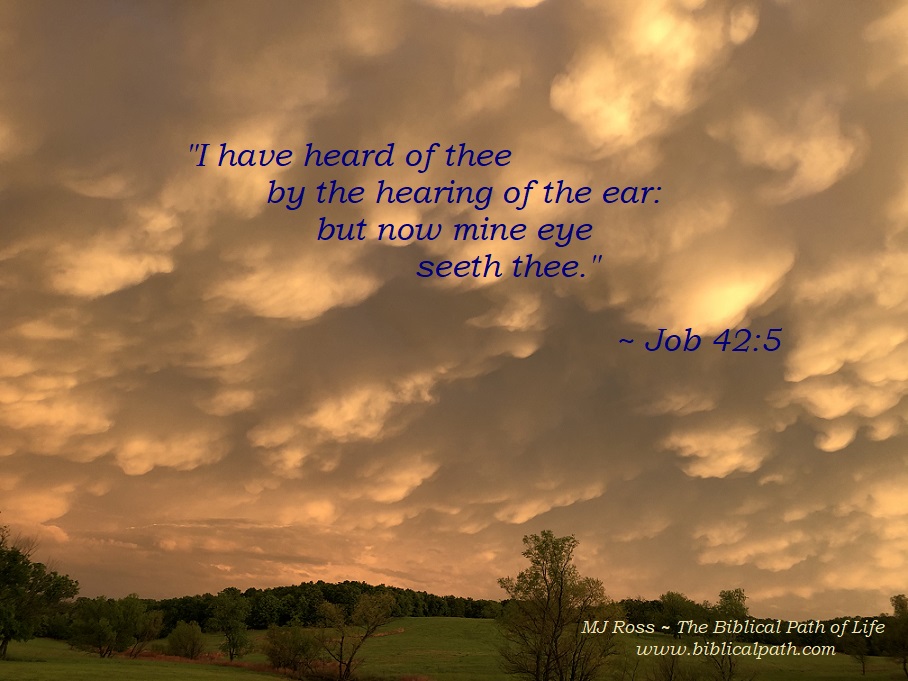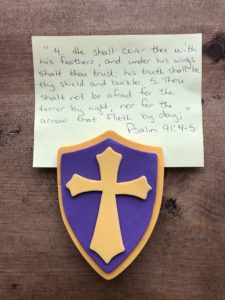
“For God is not unrighteous to forget your work and labour of love, which ye have shewed toward his name, in that ye have ministered to the saints, and do minister.”
Hebrews 6:10
Jeremiah faithfully proclaimed God’s Words to the kings and the people, warning them of the coming destruction and captivity, if they did not repent and return to God. When the people failed to repent, God allowed the Babylonians to besiege Jerusalem. Jeremiah witnessed the captivity of Judah by Babylon and the destruction of Jerusalem, the city where God had chosen to place His name. Even through all of this, Jeremiah continually shared the Word of the Lord with the people. We should recognize that at times he suffered and was rejected. This helps us understand why Jeremiah is known as the “Weeping Prophet”. Often, his life was in danger. However, we never read that Jeremiah quit God.
Remember a few of the times Jeremiah was unjustly imprisoned, and God’s protection, allowing him to continue delivering God’s Words to the people and the kings.
- Jeremiah was put in the stocks: (Jeremiah 20:1-2).
- Jeremiah was shut up in the court of the prison in the king’s house: (Jeremiah 32:2-3).
- Jeremiah was falsely accused, they smote him, and put him in prison: (Jeremiah 37:13-15).
- He was in prison when Jerusalem was taken by Babylon (see Jeremiah 38:28).
Probably the most familiar time we remember is when Jeremiah was lowered into a dungeon (probably an old cistern) where he sunk in the mire. Read some of when Jeremiah was in the dungeon: “1. Then Shephatiah … heard the words that Jeremiah had spoken unto all the people, saying, 2. Thus saith the LORD, He that remaineth in this city shall die by the sword, by the famine, and by the pestilence: but he that goeth forth to the Chaldeans shall live; for he shall have his life for a prey, and shall live … 4. Therefore the princes said unto the king, We beseech thee, let this man be put to death … 5. Then Zedekiah the king said, Behold, he is in your hand … 6. Then took they Jeremiah, and cast him into the dungeon … that was in the court of the prison: and they let down Jeremiah with cords. And in the dungeon there was no water, but mire: so Jeremiah sunk in the mire” (Jeremiah 38:1-6). Jeremiah was put into a “dungeon” (probably an empty cistern) where there was no water.
“7. Now when Ebedmelech the Ethiopian, one of the eunuchs which was in the king’s house, heard that they had put Jeremiah in the dungeon… 8. Ebedmelech went forth out of the king’s house, and spake to the king, saying, 9. My lord the king, these men have done evil in all that they have done to Jeremiah the prophet, whom they have cast into the dungeon; and he is like to die for hunger in the place where he is: for there is no more bread in the city” (Jeremiah 38:7-9). This man, Ebedmelech the Ethiopian, had compassion for Jeremiah. He wanted to spare Jeremiah’s life.
“10. Then the king commanded Ebedmelech the Ethiopian, saying, Take from hence thirty men with thee, and take up Jeremiah the prophet out of the dungeon, before he die. 11. So Ebedmelech took the men with him… and took thence old cast clouts and old rotten rags, and let them down by cords into the dungeon to Jeremiah. 12. And Ebedmelech the Ethiopian said unto Jeremiah, Put now these old cast clouts and rotten rags under thine armholes under the cords. And Jeremiah did so. 13. So they drew up Jeremiah with cords, and took him up out of the dungeon: and Jeremiah remained in the court of the prison” (Jeremiah 38:10-13). Although Jeremiah was still in prison, his life was no longer under threat of death and starvation. Jeremiah remained in the court of the prison until Jerusalem was taken by Babylon (see Jeremiah 38:28).
What makes this event so interesting?
Babylon besieged Jerusalem for about eighteen months before they took they city. Many died before and during this taking of Jerusalem (to remember the tragic invasion, read Jeremiah 52 and Lamentations). So with the fear of death and destruction, God gave Jeremiah a special word of encouragement to give to Ebedmelech the Ethiopian, the man who had saved Jeremiah’s life. “15. Now the word of the LORD came unto Jeremiah, while he was shut up in the court of the prison, saying, 16. Go and speak to Ebedmelech the Ethiopian, saying, Thus saith the LORD of hosts, the God of Israel; Behold, I will bring my words upon this city for evil, and not for good; and they shall be accomplished in that day before thee. 17. But I will deliver thee in that day, saith the LORD: and thou shalt not be given into the hand of the men of whom thou art afraid. 18. For I will surely deliver thee, and thou shalt not fall by the sword, but thy life shall be for a prey unto thee: because thou hast put thy trust in me, saith the LORD” (Jeremiah 39:15-18). God understood that Ebedmelech the Ethiopian was afraid during the days that Babylon besieged the city. To help this man understand that Jeremiah was a true prophet of God, God promised that Ebedmelech the Ethiopian would be spared. This was because he took care of Jeremiah, God’s man, and Ebedmelech the Ethiopian had put his trust in God.
Read a couple of verses that should help us understand the importance of this act. Jesus said the following to his disciples when he sent them out to preach to the people: “He that receiveth a prophet in the name of a prophet shall receive a prophet’s reward; and he that receiveth a righteous man in the name of a righteous man shall receive a righteous man’s reward” (Matthew 10:41). Ebedmelech the Ethiopian received his life in Jeremiah’s day for helping Jeremiah.
The writer of Hebrews encourages us with the following: “For God is not unrighteous to forget your work and labour of love, which ye have shewed toward his name, in that ye have ministered to the saints, and do minister” (Hebrews 6:10). Even today, we are to minister to other Christian’s in Jesus’ name.
These verses help us understand that Ebedmelech the Ethiopian did a good thing by helping the prophet Jeremiah. And God let him know by sparing his life during that terrible time, “because thou hast put thy trust in me, saith the LORD”.
Have you put your trust in the Lord and remembered to minister to other Christians in Jesus’ name?








